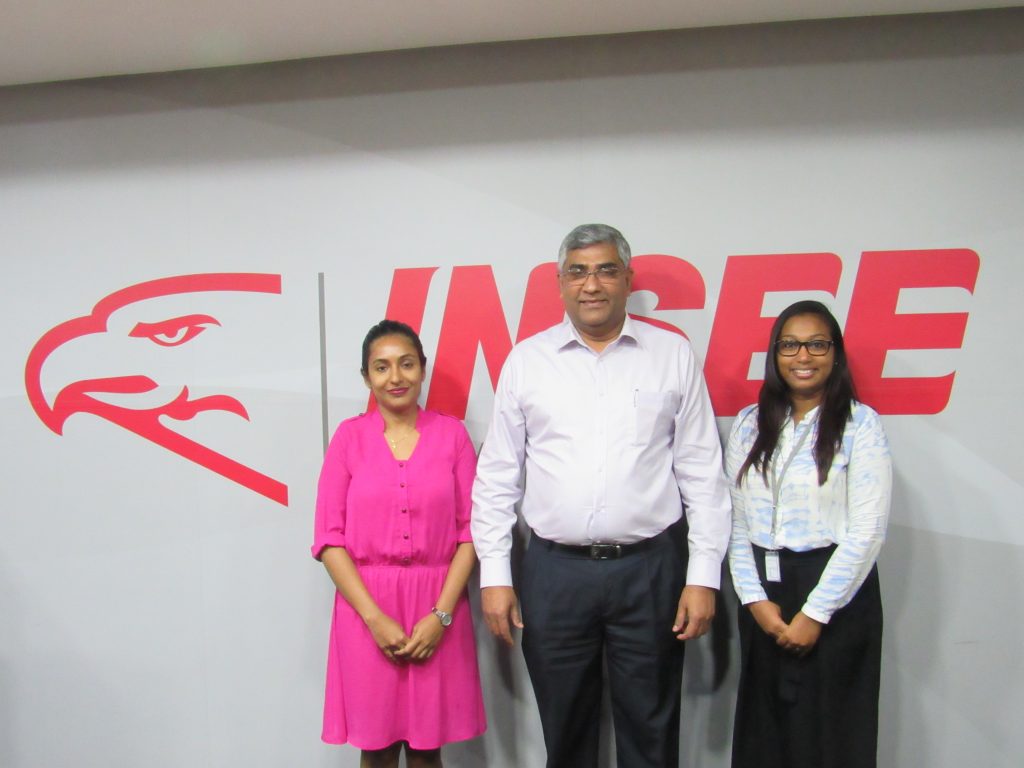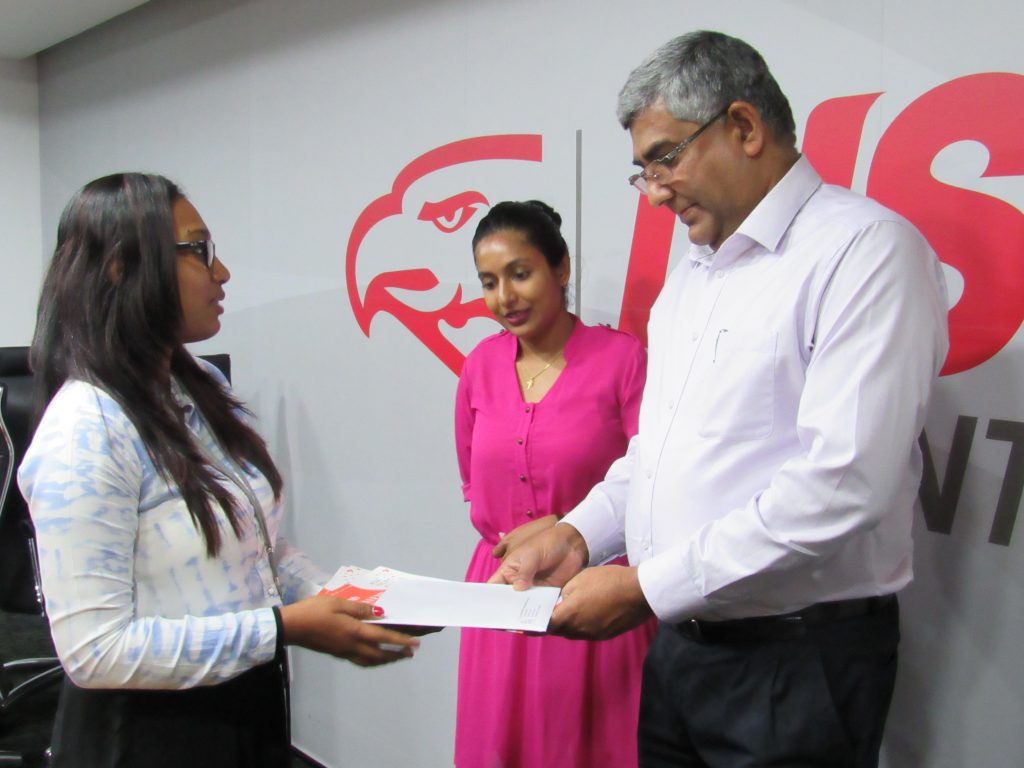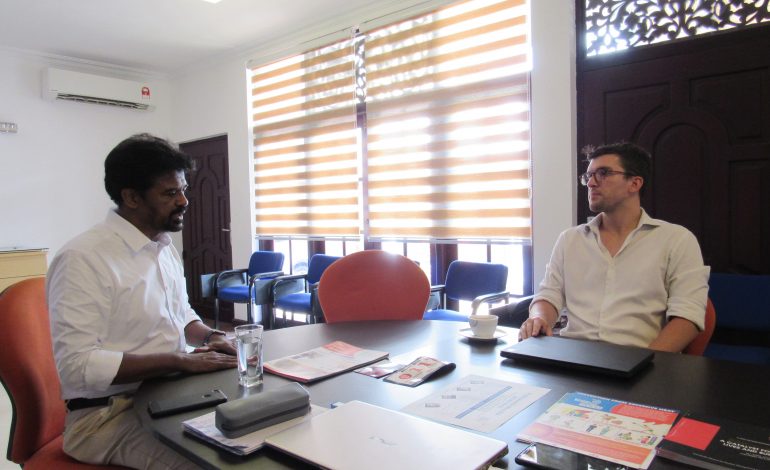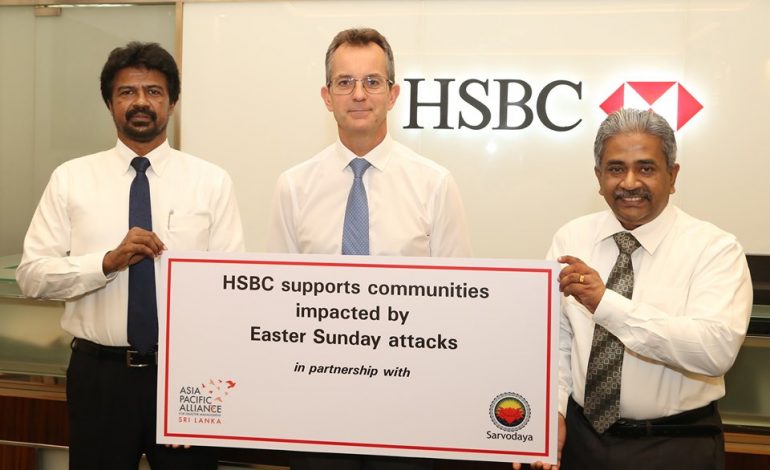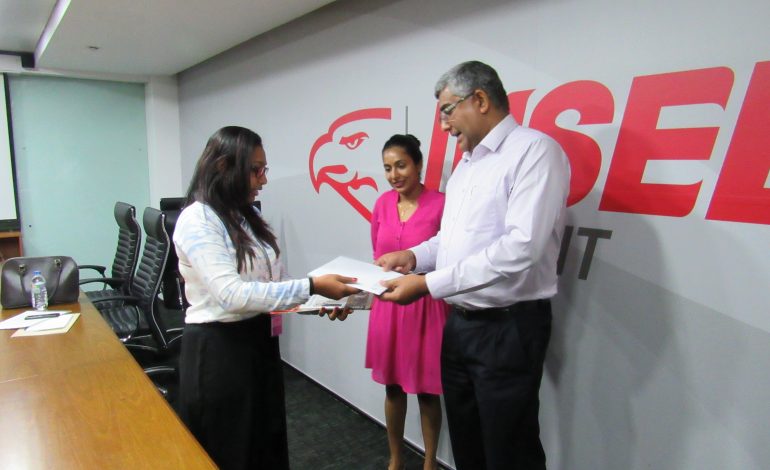
Interview with INSEE Cement CEO pertaining to the development of a Sustainable Nation
Founded in 1967, as a State-Owned Enterprise, today INSEE Cement is a member of Siam City Cement Public Company Limited (SCCC), a leading cement manufacturer in Southeast Asia. Certified as the ‘Green Cement’ in Sri Lanka by the Green Building Council, the company is recognized for its sustainable resilience and practices. INSEE Puttalam Cement Plant is the only fully integrated cement manufacturer in Sri Lanka. During an interview with Asia Pacific Alliance for Disaster Management Sri Lanka (A-PAD SL), Mr. Nandana Ekanayake, Chairman/CEO of INSEE Cement Sri Lanka, was able to give insight and better understanding on the Company’s effective sustainable measures in place along with its integration and cultivation on a much larger scale.
Q: “INSEE”, the company embeds within itself the components of “Sustainable Resilience”. How did the Company brand progress towards incorporating sustainability to the fore? Our Company is a part of Siam City Cement Public Company Ltd (SCCC) in Thailand, which is the largest cement manufacturing company in the ASEAN Region and is a part of the Global Sustainable Development Council. Considering our membership with the SCCC, the prerequisite of sustainability and environmental awareness was passed down regardless of geographical location. This has inevitably become a benchmark which involves monthly reporting (constrained to local reporting standards). These regulations are implemented despite them being stricter comparative to local competitors. We focus on minimizing our business risk by working to reduce the negative impacts of our activities on the environment, where we emphasize biodiversity conservation as a key priority. To further demonstrate our support towards the broader context of sustainability, INSEE Cement has more recently looked to sharpen our alignment with the United Nations Sustainable Development Goals
Q: Economic implications due to climate change and global warming are evident following the recurrent history of natural and man-made disasters in Sri Lanka. How can private sector negate itself from contributing further towards increasing results of climate change? INSEE Cement’s business operations are invariably reliant on natural resources. Hence, climate change is viewed to have a significant impact which would in turn affect overall performance and profitability. Effective measures are thus in place for instance, by having a professional environment team designated to each manufacturing location, to report and monitor performance against key environmental metrics. Also, additional approval is obtained from authorities of the Marine Environment Protection Authority, National Building Research Organization (NBRO) to name a few, prior to the process of every INSEE Cement plant. Most Multi-National Companies (MNCs) and a few local business entrepreneurs consider climate change as a key indicator in measuring the outcome of their activities, which would risk the brand reputation. Hence, they are bound to invest in Disaster Risk Reduction (DRR), Business Resilience/Continuity and Disaster Risk Management and ensure environmental/climate implications are reduced. Companies with large operations do place strict environmental regulations. However, SMEs do not have the required resources and facilities to do so. The strong implication of this comes with the continuous economic and political development. Majority of companies do not follow sustainable practices, having fallen prey to corruption. Therefore, the necessity to pave the way towards it by ‘successfully cascading to each part of the society and businesses in Sri Lanka’ is important.
Q: While practicing and promoting sustainability traits within the parent company, how does it trickle down to the very last entity of INSEE’s supply chain? Is your company’s BCP interconnected with their supply chain (SMEs)? At INSEE, we believe that “Safety First” is recognized as the first priority and fundamental right of every individual employed or associated with us in our business. Therefore, our entire outlook on safety is defined by the intense desire to cause “zeroharm to all stakeholders”. As such, it permeates into every aspect of the business through a robust safety model, which is further reinforced through a top down commitment led by the parent company in Thailand. In evidence of this is the collaboration with the Local Government Fire and Rescue Unit, to conduct safety drills at the Ruhunu Cement Plant. At the Puttalam Cement Plant, associations with the Lakdanavi Power Plant and the Municipal Fire and Rescue Unit have been established for the purpose of training a vigorous team for emergency responses. To enforce sustainability throughout the organization, the employees are also involved by connecting 10% of every employee’s KPI to the company’s Occupational Health and Safety (OHS) standards. Energy being a major requirement of our business, high priority is given to energy cost savings. This is then unquestionably imparted to the SMEs to continue on the sustainable development chain. However, it was a difficult task to ensure that all employees specially Third-Party Employees adhere to these standards and also understand and execute as advised.
Q: What does Business Continuity Planning (BCP) mean to INSEE Cement? In your opinion, how would you describe the Return on Investment during early preparedness, mitigation and Business Continuity Planning? Business Continuity Planning (BCP) is classified as one of the key topics internally with attention divided between processes and system failures and preparedness for fire, disasters, etc. INSEE Cement has an effective Business Recovery Plan (BRP) in place to ensure the priority of customers’ orders are met at all times. Practice drills are also in place to test the achievement of the BRP by the employees in terms of data storage, dynamic and efficient performances. A crisis communication system has been initiated for the purpose of fast paced communication and crisis management. In addition, emergency evacuation practices through associations with local fire brigade and forces are enacted as aforementioned. All the stakeholders including divisional secretaries are brought in to carry out detailed discussions. Thereby, determining the contributions to be made to affected areas, such as Puttalam during heavy floods, and the best expansive methods of contributions are considered. Also, when a business in the vicinity is facing a crisis, a helping hand is indefinitely extended.
Q: What mechanisms do you implement to ensure community inclusivity in the activities carried out by INSEE Cement? INSEE Cement ensures community inclusivity through a number of approaches. Our involvement in the Youth Vocational Training Programme has proven to be imperative by benefitting over 175 youth who have graduated as technicians. Many of these graduates have later been employed by INSEE Cement as full-time employees. Furthermore, the initiation of a clean water project by commissioning of Reverse Osmosis (RO) water treatment plants were implemented in 2017, 2018 and 2019. Through this, every year we reached out to a school in Puttalam. This year, Pottuvilluwa Vidyalaya school children were provided with safe and clean drinking water. We do this endeavour to coincide with the World Children’s day every year. INSEE Cement is also involved in reviving of mining areas into a high standard of biodiversity richness through reforestation and diligent protection of every animal species. In addition, INSEE together with Sri Lanka Navy carry out coral rehabilitation in the South, and also work with Sri Lanka Forest Department and Wildlife Ocean and Resource Conservation on mangrove planting initiative in the South as well.
Q: How do you see volunteerism within the organization? How can the private sector allocate time for volunteerism exclusive of support extended during disasters? At our Company, volunteerism is encouraged to all the employees of INSEE Cement to widely circulate values of social responsibility. Our Employee Volunteer Programme provides the incentive to involve in relocation of fauna species from the Aruwakkalu Quary of the company. Many employees have been recorded to volunteer for the Annual Animal Rescue Programme over the years. The staff are also involved in aiding local businesses to renovate their working space, among other activities. In 2018, we began the process of setting up the INSEE Green Club with the objective of empowering employees to participate and drive meaningful environment activities and initiatives across all INSEE locations, promoting a green work and living space. The club began formal operations in 2019.
